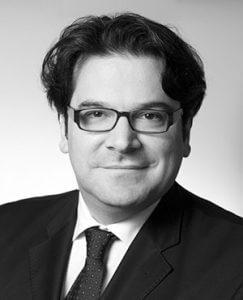His work as a key reformer of cantorial music and the organ was an expression of the growing integration of Jews in Germany.
In 1933, there were already 12 synagogues in Berlin alone with organs as an essential element of the service.
One of the clear consequences of the Shoah is that things are different today.
German Jewry has been expelled and murdered.
The few survivors who returned only continued this tradition in isolated cases after 1945.
One of these was the incomparable cantor Estrongo Nachama.
In the Pestalozzistrasse synagogue, he began singing on Shabbat and holidays accompanied by Lewandowski’s music on the organ as early as 1947.
This has been continued by his successors to this day.
It is an important part of the festival to make the importance and the work of this composer accessible to a large audience, even beyond the Jewish community.
Originally written in Germany, it has been passed on from here all over the world.
I am therefore delighted that the number of choirs registered this year has exceeded all expectations.
I wish the organizers every success in making Lewandowski’s work better known as a cultural asset of Europe and every success to all participants.
Dr. Gideon Joffe

